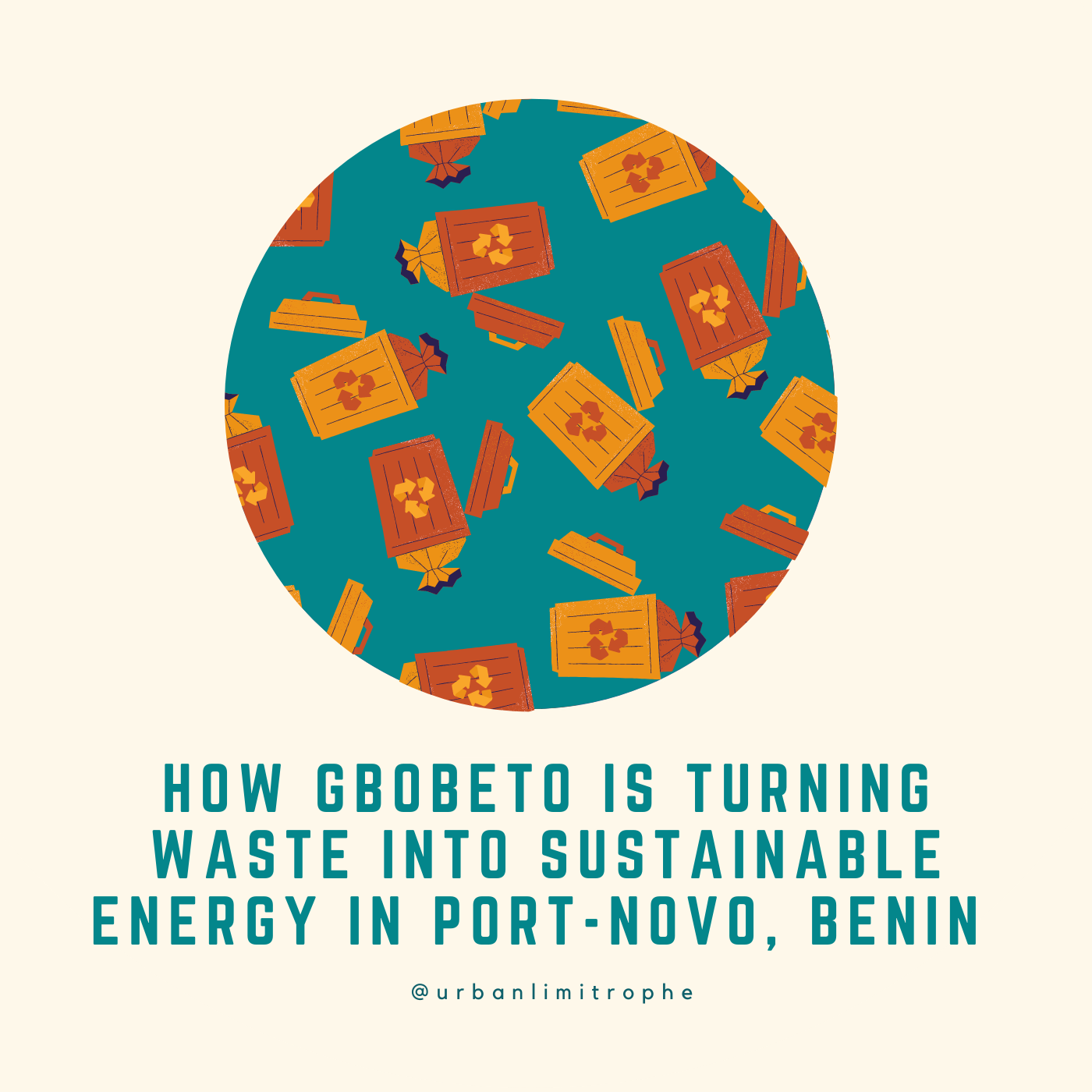In this episode, I discuss recycling and the importance of creating sustainable energy alternatives with Naomi Fagla Medegan, the founder of Gbobètô. Gbobètô is a non-profit based out of Porto-Novo, Benin that sees waste as a tool for social and sustainable development and through their various recycling programs works to make cities cleaner and communities empowered.
In this episode, you'll learn about:
- how biomass briquettes can be a source of sustainable and affordable energy in areas with poor electricity access
- waste reclaimers and the work they do to keep cities clean
- the trials, tribulations and triumphs of getting recycling infrastructure up and running in a city
- and much more!
Powered by RedCircle
You can listen to the podcast on Spotify | Google Podcasts | Stitcher | RSS | Apple Podcasts
Guest: Naomi Fagla Medegan
- 05:31 | Introduction to the Gbobètô
- 06:30 | What does Gbobètô mean?
- 07:35 | Can you explain a bit about the Green Energy Project/Project Energie verte and what inspired you to start this?
- 11:25 | Can you explain Gbobètô’s process of turning waste into green energy by creating fuel briquettes?
- 13:28 | Why is producing fuel briquettes important for the communities that use it?
- 16:42 | Are you seeing trends towards using more sustainable alternatives for energy?
- 18:12 | Can you explain a bit more about Gbobètô’s Recycleries (recycling stations) project?
- 22:42 | How does Gbobètô decide where the new Recycleries will be located within the city?
- 24:57 | What have been some of the surprises of trying to implement these Recycleries?
- 27:55 | What happens with the recycled materials once they are collected?
- 30:25 | What is the demographic of people that Gbobètô is employing through their various initiatives?
- 32:47 | How working for Gbobètô has built the capacity of local citizens
- 38:05 | What kind of supports (i.e. policies, partnerships) do you think cities should offer companies/non-profits like Gbobètô to help establish and/or expand recycling programs and initiatives?
- 42:23| How can people get involved with the Gbobètô?
Show Notes
Want to learn more? Check out this episode's references!
Ahmed, S. F. (2016, September 29). The Global cost of electronic waste. The Atlantic. Retrieved from https://www.theatlantic.com/technology/archive/2016/09/the-global-cost-of-electronic-waste/502019/
Imasiku, K., & Thomas, M. V. (2020). The mining and technology industries as catalysts for sustainable energy development. Sustainability, 12, 1-13. doi:10.3390/su122410410
Peša, I. (2020). Between waste and profit: Environmental values on the Central African Copperbelt. The Extractive Industries and Society. doi:10.1016/j.exis.2020.08.004
Yeung, P. (2019 March 29). The toxic effects of electronic waste in Accra, Ghana. Bloomberg CityLab. Retrieved from https://www.bloomberg.com/news/articles/2019-05-29/the-rich-world-s-electronic-waste-dumped-in-ghana
Stay in the loop!
If you would like to be interviewed, have an interesting idea to share for an episode, or have any feedback on the podcast, please send me an email at hello[at]urbanlimitrophe.com.
If you enjoy the show, please share it with your family, friends, firefighter, ferryman, fortune teller... and leave a review on Apple Podcasts!
Make sure to subscribe to the newsletter and follow the podcast on Instagram to stay in the loop



No comments:
Post a Comment